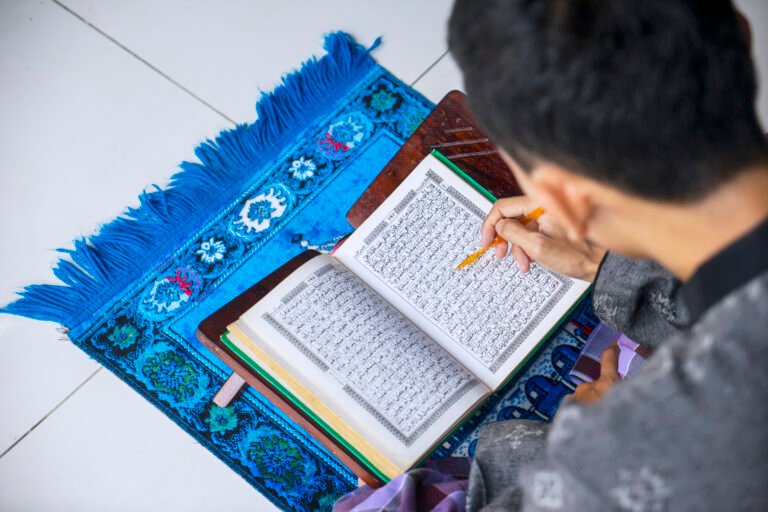7 Powerful Ways on How to Celebrate Mawlid Nabawi the Right Way
How to Celebrate Mawlid Nabawi the Right Way
What is Mawlid Nabawi?
Every year, millions of Muslims across the world ask the same question: How to Celebrate Mawlid Nabawi? The Mawlid Nabawi refers to the day of the birth of Prophet Muhammad ﷺ. In many Muslim-majority countries, this day is marked by large gatherings, recitations, songs, and even special sweets. But when we look deeper into the teachings of Islam, we find that the Prophet ﷺ himself, his Companions, and the early generations did not celebrate his birthday in this way.
This does not mean that remembering the Prophet ﷺ is wrong—on the contrary, it is a noble act. But the real celebration is not about throwing parties or eating desserts. The true way to celebrate is by reviving his message, following his Sunnah, and living as he taught.
The Historical Perspective
To understand how to celebrate Mawlid Nabawi, we must first look at Islamic history. Neither the Prophet ﷺ nor his noble Companions ever celebrated his birth. The Rightly Guided Caliphs, who were the closest in love and loyalty to him, never organized special events for this occasion.
So, when did these celebrations start? Historians suggest that the formal celebration of Mawlid began centuries later during the Fatimid period in Egypt, around the 10th century. It was then spread to different parts of the Muslim world. However, the earliest generations (the Salaf)—whom the Prophet ﷺ praised—never practiced this.
This shows us that while the love of the Prophet ﷺ is essential, it should be expressed in ways that align with Islam’s foundations.
The Real Purpose of the Prophet’s Mission
When thinking about how to celebrate Mawlid Nabawi, it is vital to remember why Allah sent the Prophet ﷺ in the first place. The Qur’an states:
“And We have not sent you, [O Muhammad], except as a mercy to the worlds.” (Qur’an, 21:107)
The Prophet ﷺ was not sent so that we could mark his birthday with food and gatherings. His mission was to guide humanity, establish justice, and purify hearts. He came to teach us to worship Allah alone, improve our manners, and build a society based on mercy, compassion, and fairness.
So, the true celebration is not limited to one day in the year—it is about living his teachings every single day.
Misconceptions About Mawlid Nabawi
One of the biggest misunderstandings about (how to celebrate Mawlid Nabawi) Mawlid Nabawi is that people think it must be celebrated with outward expressions:
Singing praises and songs.
Cooking special sweets.
Hosting festivals.
But none of these reflect the Prophet’s actual teachings. These cultural practices may bring joy, but they can distract from the true purpose of loving the Prophet ﷺ: following his Sunnah.
If we ask sincerely: How to Celebrate Mawlid Nabawi in the best way? The answer lies not in festivities but in living by his message.
7 Powerful Ways on How to Celebrate Mawlid Nabawi the Right Way
Instead of limiting our love for the Prophet ﷺ to one day, here are seven powerful and practical ways to truly honor him:
1. Read and Reflect on the Qur’an
The Prophet ﷺ lived by the Qur’an. His wife Aisha (RA) said: “His character was the Qur’an” (Sahih Muslim, sunnah.com). To celebrate him, Muslims should dedicate time to reading, understanding, and applying the Qur’an in daily life.
2. Learn the Authentic Seerah
Studying the biography (Seerah) of the Prophet ﷺ helps us understand his struggles, leadership, and compassion. Parents can teach their children these stories to connect them with his example.
3. Revive the Sunnah in Daily Life
The best way to celebrate is by practicing his Sunnah—such as praying on time, greeting others with peace, showing kindness to family, and honesty in business. Small acts, when done consistently, are more valuable than one-time events.
4. Teach Children About the Prophet ﷺ
If you wonder how to celebrate Mawlid Nabawi with kids, the answer is education. Teach them his stories, manners, and values. This builds a lifelong bond with the Prophet ﷺ, rather than just one day of celebration.
5. Increase Acts of Charity
The Prophet ﷺ was known for his generosity, especially in Ramadan. A great way to celebrate him is by giving charity, supporting the poor, and helping those in need.
6. Send More Salawat Upon Him
Allah commands us:
“Indeed, Allah and His angels send blessings upon the Prophet. O you who have believed, ask [ Allah to confer] blessing upon him and ask [ Allah to grant him] peace.” (Qur’an, 33:56, quran.com)
Saying Salallahu ‘alayhi wa sallam frequently is one of the best ways to express love for him.
7. Strengthen Community Bonds Through Knowledge
Instead of parties, organize study circles about the Prophet ﷺ, Qur’an classes, or charity drives. This builds unity and keeps his legacy alive in a meaningful way.
Lessons from the Prophet’s Life
Another way of answering How to Celebrate Mawlid Nabawi is to draw lessons from his life:
Patience: In the face of trials, he remained steadfast.
Mercy: He forgave even his enemies.
Justice: He treated everyone equally, regardless of status.
If we adopt these values in our families, workplaces, and communities, every day becomes a celebration of his birth and mission.
Conclusion
So, how to celebrate Mawlid Nabawi? The answer is simple but powerful: by following the Prophet’s teachings, not by limiting his remembrance to food, sweets, or festivals. The Companions did not celebrate his birthday, yet they were the closest to him. Their celebration was in their obedience, their love, and their dedication to his Sunnah.
Every Muslim today can honor the Prophet ﷺ in the same way: by living the Qur’an, practicing the Sunnah, teaching their children, giving charity, and sending salawat. This is the celebration that never ends—one that aligns with the purpose for which Allah sent him: to guide all of humanity.








